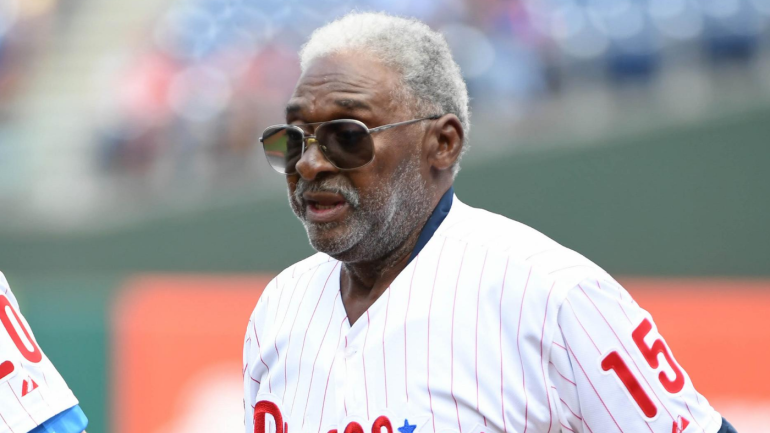
On Thursday, the Philadelphia Phillies announced that they will retire No. 15 in honor of Dick Allen. The Phillies will host a ceremony honoring Allen on Sept. 3 -- the 57th anniversary of Allen's MLB debut -- prior to their game against the Nationals. The Phillies also said that they will honor Allen during the 2021 season, when presumably fans will be allowed in attendance.
"Dick Allen burst onto the 1964 Phillies and immediately established himself as a superstar," Phillies owner John Middleton said in a press release. "His legendary performance on the field gave millions of fans lasting memories, and he helped cement my love for baseball and the Phillies as a young boy. The Phillies organization is thrilled to give Dick and his family this honor that recognizes his Hall of Fame-worthy career and his legacy as one of the greatest Phillies of all time."
Allen is the first non-Hall of Famer in Phillies history to have his number retired. In 2014, Allen was a candidate for the Baseball Hall of Fame via the Golden Era Committee. He fell one vote shy of the required 12 votes needed for election into the Hall. He will join Hall of Famers Richie Ashburn (1), Jim Bunning (14), Mike Schmidt (20), Steve Carlton (32), Roy Halladay (34) and Robin Roberts (36) as the only Phillies in team history to have their numbers retired.
Allen, who spent 15 years in MLB, is known for the impressive power numbers he achieved while playing during a pitcher-dominated era in baseball. The seven-time All Star, who played the two corner infield spots and left field, and also spent time playing for the Cardinals, Dodgers, White Sox and Athletics.
In his nine seasons with the Phillies (1963-77), he batted .290 with 204 doubles, 204 home runs, 655 RBI, a .371 on-base percentage and a .530 slugging percentage (.902 OPS) in 1,070 games. The 1964 National League Rookie of the Year owns the second-best slugging percentage in Phillies history, behind only Hall of Famer Chuck Klein (.553). Allen also led the league in OPS four times in his career, including twice with the Phillies in 1966 (1.027) and 1967 (.970).


















